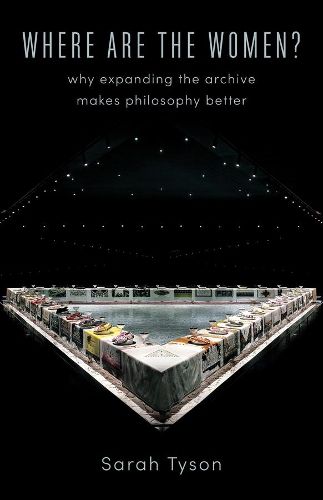Readings Newsletter
Become a Readings Member to make your shopping experience even easier.
Sign in or sign up for free!
You’re not far away from qualifying for FREE standard shipping within Australia
You’ve qualified for FREE standard shipping within Australia
The cart is loading…






Philosophy has not just excluded women. It has also been shaped by the exclusion of women. As the field grapples with the reality that sexism is a central problem not just for the demographics of the field but also for how philosophy is practiced, many philosophers have begun to rethink the canon. Yet attempts to broaden European and Anglophone philosophy to include more women in the discipline?s history or to acknowledge alternative traditions will not suffice as long as exclusionary norms remain in place.
In Where Are the Women?, Sarah Tyson makes a powerful case for how redressing women?s exclusion can make philosophy better. She argues that engagements with historical thinkers typically afforded little authority can transform the field, outlining strategies based on the work of three influential theorists: Genevieve Lloyd, Luce Irigaray, and Mich?le Le Doeuff. Following from the possibilities they open up, at once literary, linguistic, psychological, and political, Tyson reclaims two passionate nineteenth-century texts-the Declaration of Sentiments from the 1848 Seneca Falls Convention and Sojourner Truth?s speech at the 1851 Akron, Ohio, Women?s Convention-showing how the demands for equality, rights, and recognition sought in the early women?s movement still pose quandaries for contemporary philosophy, feminism, and politics. Where Are the Women? challenges us to confront the reality that women?s exclusion from philosophy has been an ongoing project and to become more critical both of how we see existing injustices and of how we address them.
$9.00 standard shipping within Australia
FREE standard shipping within Australia for orders over $100.00
Express & International shipping calculated at checkout
Philosophy has not just excluded women. It has also been shaped by the exclusion of women. As the field grapples with the reality that sexism is a central problem not just for the demographics of the field but also for how philosophy is practiced, many philosophers have begun to rethink the canon. Yet attempts to broaden European and Anglophone philosophy to include more women in the discipline?s history or to acknowledge alternative traditions will not suffice as long as exclusionary norms remain in place.
In Where Are the Women?, Sarah Tyson makes a powerful case for how redressing women?s exclusion can make philosophy better. She argues that engagements with historical thinkers typically afforded little authority can transform the field, outlining strategies based on the work of three influential theorists: Genevieve Lloyd, Luce Irigaray, and Mich?le Le Doeuff. Following from the possibilities they open up, at once literary, linguistic, psychological, and political, Tyson reclaims two passionate nineteenth-century texts-the Declaration of Sentiments from the 1848 Seneca Falls Convention and Sojourner Truth?s speech at the 1851 Akron, Ohio, Women?s Convention-showing how the demands for equality, rights, and recognition sought in the early women?s movement still pose quandaries for contemporary philosophy, feminism, and politics. Where Are the Women? challenges us to confront the reality that women?s exclusion from philosophy has been an ongoing project and to become more critical both of how we see existing injustices and of how we address them.